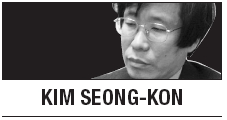At the Winter Olympic Games in Sochi, Russia declared internationally well-known Russian writers as its cultural icons. The great writers proudly presented included Pushkin, Tolstoy, Dostoevsky, Chekhov and Nabokov. No one would argue that these celebrated writers have influenced the world enormously. When I was in high school, for example, I burned the midnight oil reading Pushkin’s “The Captain’s Daughter,” Tolstoy’s “Resurrection,” Dostoevsky’s “Crime and Punishment” and Chekhov’s “The Cherry Orchard,” among others.

I also memorized and recited Pushkin’s lovely poem: “Should this life deceive you/ Do not be grieved or angry at it/ Bear with gloomy days/ Trust, happy days will come/Heart lives in the future/ Gloom always pervades the present/ All is evanescent, all is ephemeral/ Someday you will recollect what is gone with a smile.” Whenever I was in despair, I was greatly encouraged by this poem. I was also fascinated by Chekhov’s “The Darling,” which mesmerizingly renders an adorable woman’s life and how it is intricately interwoven with her father, husband and son.
Thus I find the list of Russian writers quite appropriate and persuasive. However, I was a bit surprised to find the name Vladimir Nabokov on the list. While he was a great writer from Russia, Nabokov and his family escaped from the country during the Russian Revolution, and wandered through various countries such as the United Kingdom, Germany and France. He became a naturalized U.S. citizen in 1945. Yet Russia included him on the short list of representative Russian writers without any reservations. Finding his name in a newspaper article, I could not but help but admire the extraordinary magnanimity of the Russian people. The reporter who wrote the article pointed this out, too.
At the same time, it suddenly occurred to me that if the Korean people had been Russians, they would never have included Nabokov on the list. One reason is because Koreans would surely think of Nabokov as a wealthy man of nobility who abandoned his motherland in a time of crisis and sought refuge abroad. That surely is an unpardonable sin in Korea. The other reason is that Koreans would think of Nabokov as an American writer rather than a Russian writer.
By the same token, Koreans would be unlikely to select Yi Kwang-su for a list of great Korean writers for the upcoming PyeongChang Winter Olympics. To Korean eyes, both Navokov and Yi betrayed their country and thus can never be condoned, regardless of their importance and eminence as writers. I am saddened and ashamed that for these reasons, Koreans are often labeled as parochial and nationalistic.
Some time ago, I went to a meeting of literary critics to discuss the topic, “When children from the so-called multicultural families grow up and later publish a literary work, does it belong to Korean literature?” “Of course, it does,” I insisted. “Those children, too, are Korean citizens, aren’t they?” Surprisingly, few people seemed to agree with me. “I see a problem here,” one literary critic objected. “They have foreign origins. They don’t have the spirit and tradition of Korean literature. How could they be part of Korean literature?” Ah, such a callous nationalistic attitude pierced through my heart like a merciless arrow. Are then Chang-rae Lee, Don Lee, Heinz Insu Fenkl or Nora Okja Keller not American writers?
The other day, I went to another conference, on the relationship between Korean writers and Korean-American writers.
“They are Americans, not Koreans,” one scholar of Korean literature argued. “So the literary works they produce have nothing to do with Korean literature.”
“Technically, they’re American writers for sure,” I intervened. “But I think they can significantly contribute to enlarging the scope of Korean literature if we embrace their literary worlds under the theme of diaspora.” Once again, people were unswerving and did not agree. I was nothing but a visionary, a pre-cog feebly presenting a minority report which would eventually be ignored, as Philip K. Dick described in his short story “The Minority Report.”
Is it not true that Korean-American writers are those who suddenly find themselves uprooted involuntarily, forced into exile, and cast into an unfamiliar, hostile environment? And is it not also true that their literary worlds always evolve around the compelling themes of the alienation and acculturation of the Korean diaspora? Indeed, they are situated somewhere between their indigenous ethnic identity and the dominant culture into which they are accidentally thrown. Besides, Korean-American writers almost always use Korea-related materials for their stories or poems to render their existential predicament. How, then, can we dismiss them as being entirely irrelevant and foreign to us?
In this rapidly globalizing world, we need to open up our minds and embrace those who are different from us. Instead of dismissing something, muttering, “What does it have to do with us?” we should try to accommodate it. In doing so, we will eventually enrich ourselves and our culture. We should learn to embrace the world in our arms.
By Kim Seong-kon
Kim Seong-kon is a professor of English at Seoul National University and president of the Literature Translation Institute of Korea. ―Ed.





![[Exclusive] Hyundai Mobis eyes closer ties with BYD](http://res.heraldm.com/phpwas/restmb_idxmake.php?idx=644&simg=/content/image/2024/11/25/20241125050044_0.jpg)
![[Herald Review] 'Gangnam B-Side' combines social realism with masterful suspense, performance](http://res.heraldm.com/phpwas/restmb_idxmake.php?idx=644&simg=/content/image/2024/11/25/20241125050072_0.jpg)

